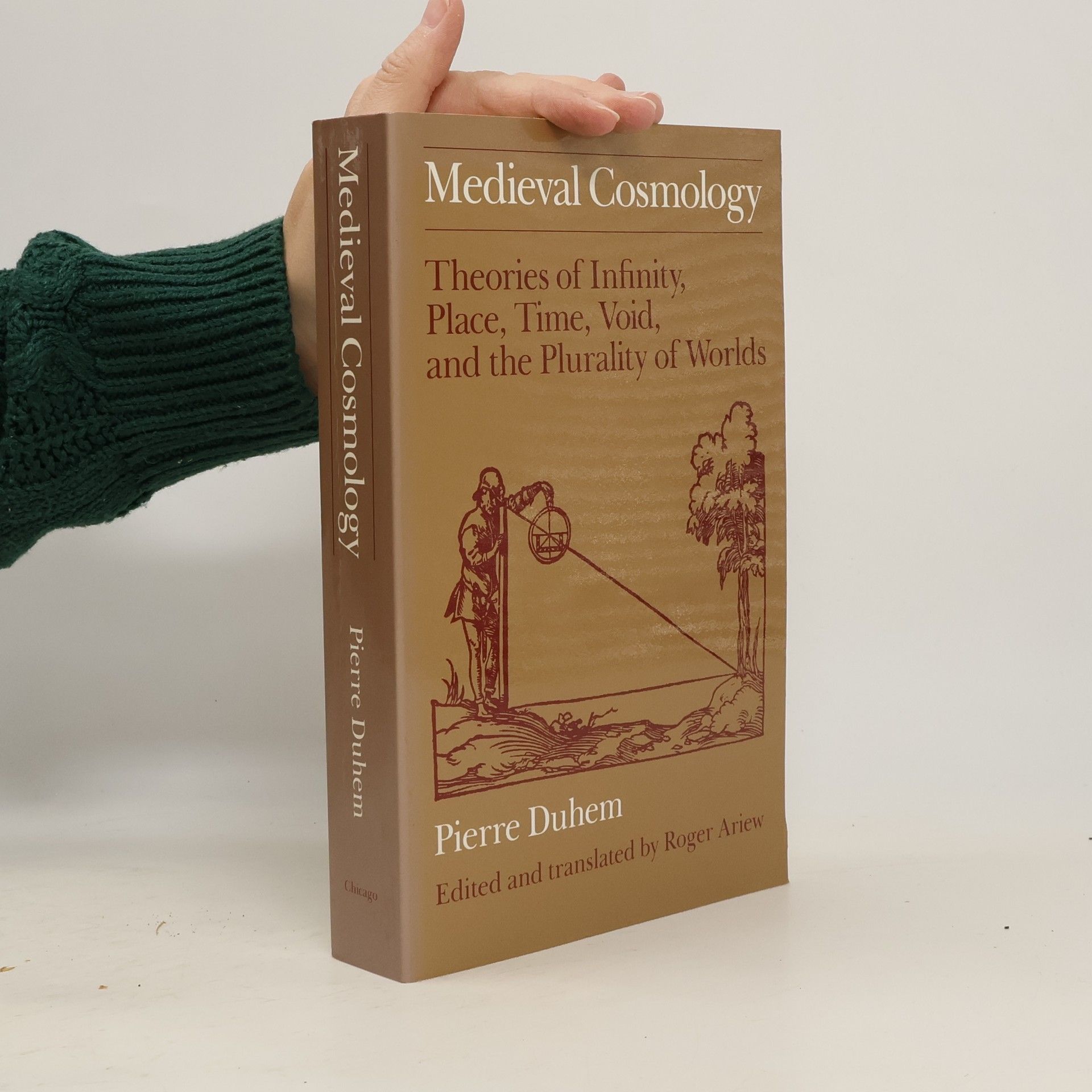Medieval Cosmology
Theories of Infinity, Place, Time, Void, and the Plurality of Worlds
- 642pages
- 23 heures de lecture
These selections from Le système du monde , the classic ten-volume history of the physical sciences written by the great French physicist Pierre Duhem (1861-1916), focus on cosmology, Duhem's greatest interest. By reconsidering the work of such Arab and Christian scholars as Averroes, Avicenna, Gregory of Rimini, Albert of Saxony, Nicole Oresme, Duns Scotus, and William of Occam, Duhem demonstrated the sophistication of medieval science and cosmology.
